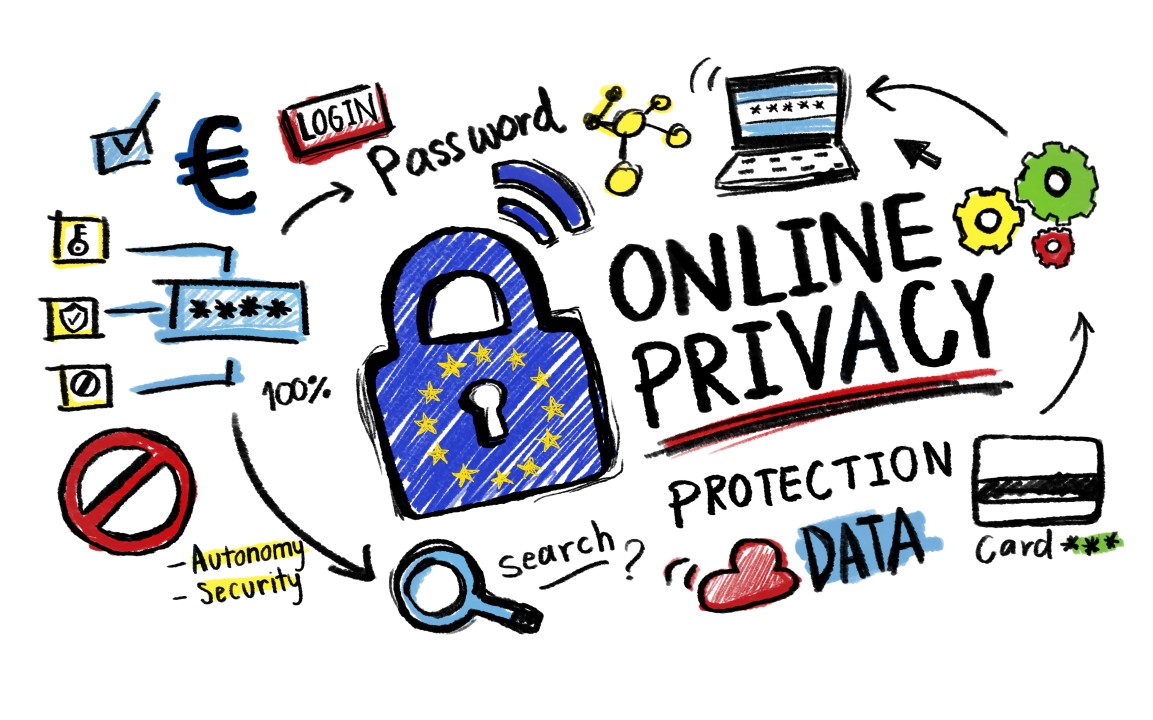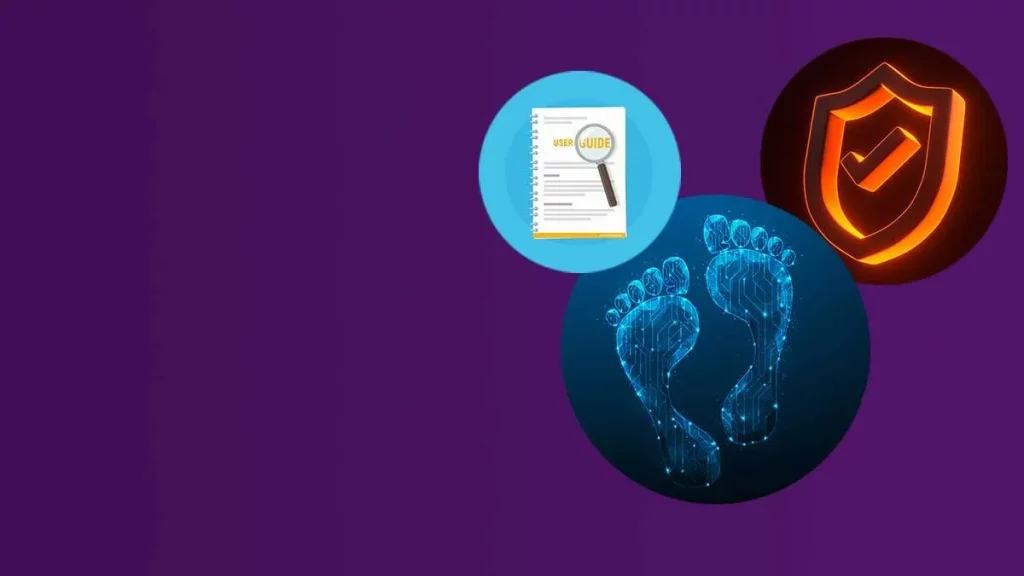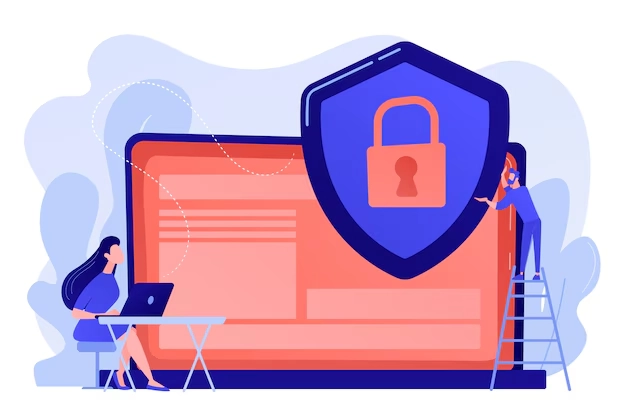Safeguarding Your Digital Footprint: Ensuring Online Privacy in the Digital Age

Our lives are increasingly intertwined with the online world in today’s digital age. From social media to online banking, we rely on the internet for countless aspects of our daily lives. However, with this increased connectivity comes the need to safeguard our digital footprint and ensure online privacy. In this article, I will explore the importance of online privacy and common threats to our digital footprint and provide tips on protecting our personal information online.
Table of Contents
Introduction to online privacy in the digital age
The digital age has brought incredible technological advancements, making our lives more convenient and interconnected. However, it has also exposed us to new risks and threats. Online privacy refers to our control over our personal information and how it is collected, used, and shared by online entities. Ensuring online privacy is crucial in maintaining digital security and protecting ourselves from potential harm.
Why online privacy is important
Online privacy is essential for several reasons:

- It helps prevent identity theft and fraud. With access to our personal information, cybercriminals can wreak havoc on our lives, stealing our identities and causing financial damage.
- Online privacy ensures our freedom. Without confidentiality, our every move and interaction can be monitored, limiting our ability to express ourselves freely and engage in activities without fear of judgment or reprisal.
- Online privacy is crucial for maintaining trust in the digital world.
Individuals need to feel safe and secure using online platforms to ensure the growth and innovation of the internet.
Common threats to online privacy
In the digital age, we must be aware of numerous threats to our online privacy. One common threat is data breaches. These occur when hackers gain unauthorized access to a company’s database, exposing sensitive user information. Another threat is phishing, where scammers use deceptive tactics to trick individuals into revealing their personal information, such as passwords or credit card details. Additionally, online tracking and surveillance by advertisers and government agencies can compromise our privacy, as our online activities are monitored and analyzed without our consent.
Tips for safeguarding your digital footprint
Fortunately, there are steps we can take to safeguard our digital footprint and protect our online privacy. The first tip is to use strong, unique passwords for all our online accounts. This makes it harder for hackers to access our personal information. Additionally, enabling two-factor authentication adds an extra layer of security by requiring a second verification form, such as a fingerprint or a text message code, to access our accounts. Regularly updating software and applications on our devices is another crucial step, as it ensures we have the latest security patches to protect against potential vulnerabilities.
Understanding privacy settings on social media platforms
Social media platforms have become integral to our lives, allowing us to connect with friends, share photos, and express ourselves. However, it is essential to understand and manage the privacy settings on these platforms to safeguard our digital footprint. Most social media platforms offer a range of privacy options, allowing us to control who can see our posts, photos, and personal information. It is advisable to review and update these settings regularly to ensure we are comfortable with the level of privacy we have set.
Protecting your personal information online
Protecting our personal information online is vital to maintaining our online privacy:

- We should be cautious about the information we share online, especially on public platforms. Avoid posting sensitive information such as addresses, phone numbers, or financial details that can be used against us.
- Be wary of suspicious emails, messages, or phone calls asking for personal information. Legitimate organizations will never request sensitive data through these channels.
- Consider using a virtual private network (VPN) to encrypt your internet traffic and protect your data from prying eyes when connecting to public Wi-Fi networks.
The role of encryption in maintaining online privacy
Encryption plays a crucial role in maintaining online privacy. It is the process of encoding data so that only authorized parties can access and understand it. Encryption ensures that sensitive information, such as passwords and credit card details, cannot be intercepted and deciphered by hackers. It is essential to use secure, encrypted connections when transmitting sensitive data, such as when making online purchases or accessing online banking services.
Privacy laws and regulations
Governments around the world have recognized the importance of online privacy and have implemented laws and regulations to protect individuals’ personal information. Familiarize yourself with the privacy laws in your country and understand your rights regarding the collection, use, and storage of your data. It is crucial to support organizations that prioritize data protection and adhere to these regulations.
Online privacy tools and resources
Numerous online privacy tools and resources are available to help safeguard our digital footprint. Antivirus software and firewalls can protect our devices from malware and unauthorized access. Privacy-focused web browsers and search engines offer enhanced privacy features, such as blocking trackers and not storing browsing history. Virtual private networks (VPNs) encrypt our internet traffic and provide anonymity by masking our IP address. Stay informed about the latest privacy tools and resources to ensure you are taking advantage of the best options available.
FAQs: How can individuals ensure online privacy in an increasingly digital world?
Q: What should I do if I suspect my personal information has been compromised? A: If you suspect your personal information has been compromised, act quickly. Change your passwords for all online accounts and monitor your financial statements for any suspicious activity. Contact your bank or credit card company to report unauthorized charges and consider placing a fraud alert on your credit report.
Q: Is it safe to use public Wi-Fi networks? A: Public Wi-Fi networks can be risky as they are often unsecured, making it easy for hackers to intercept your data. If you must use public Wi-Fi, consider using a virtual private network (VPN) to encrypt your internet traffic and protect your privacy.
Q: How often should I update my privacy settings on social media platforms? A: It is advisable to review and update your privacy settings on social media platforms regularly, especially after significant platform updates. This ensures you control who can see your posts and personal information.
Conclusion: Taking control of your digital footprint
In conclusion, safeguarding our digital footprint and ensuring online privacy is essential in the digital age. By understanding the importance of online privacy, being aware of common threats, and implementing the tips and strategies discussed in this article, we can take control of our digital lives and protect our personal information. Remember, our digital footprint is valuable, and our responsibility is to safeguard it for our security and peace of mind.






